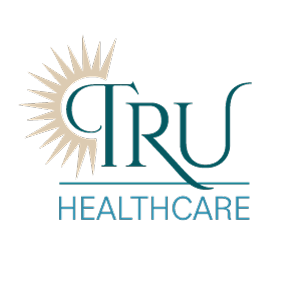While Hallmark concentrates on sales of greeting cards and florists work their fingers raw arranging bouquets, we thought it would be interesting to learn how love can help improve our health. It’s something that we often overlook when choosing to “be healthy.” We think about our diet, how much exercise we can squeeze into our schedules, how much water we drink. But we rarely consider our social relationships and interactions when thinking about New Year’s resolutions or healthier lifestyles. Many studies have shown, however, that healthy personal relationships are just as important to good health as are exercise and good eating habits.
Why isn’t everyone talking about this?
The conspiracy theorist in me says it’s because no one makes money off of my making a new friend or my relationship with a loved one. There’s no way to make that into a pill, a vitamin, or a quick fix. Our relationships are something that we have to develop for ourselves. Sometimes, maintaining a relationship can even be harder than breaking it off. But after you hear about all the health benefits of healthy social interaction, maybe you’ll be the first one to start talking about the benefits!
Where science meets those warm, fuzzy feelings
Several studies have shown that the support system involved with our personal relationships helps to build better physical and mental health. It makes sense – you feel good when you have the support of people who care about you. And it feels good to support them in return. But even a small gesture, like a smile from a passing stranger, or the “good morning” you say to that guy who works on the floor below you, can have a ripple effect that leads to improved health and well-being.
These interactions remind us that we are part of something bigger than ourselves; a community, a town, and a whole world full of other people. Maybe that stranger will smile at someone else and pass on the good feeling. Maybe the guy downstairs was having a tough week, but now he feels just a little better.
“Be kind, for everyone you meet is fighting a hard battle.”
John Watson
The good kind of contagious
This quote is more than 100-years old, but still speaks as a reminder that we are surrounded by people who are, like us, struggling in some way. By supporting each other, we make those burdens feel a bit lighter. Sometimes we forget our trouble, if only for a minute. Even when remembered, a burden shared is far easier to carry than burdens borne alone.
Each time you smile or wave, you silently tell the person you smiled at, “you matter.” You’re signaling that the person is worth your time. And that feels good, too – we all need a reminder sometimes that we matter. I’m telling you right now – you matter to me. If I see you on the street, I will smile and wave at you, and I hope you do the same back. I’m smiling at you right now, in fact. And I bet you just smiled back. Isn’t that just the coolest!
Put it into action!
So much of our time is spent in solitude; driving alone in the car, sitting at a desk, waiting for appointments. Even when we’re together, sometimes it still feels like we’re alone. The supercomputers in the palms of our hands lead us to a paradox. We spend so much time communicating that we have no time to communicate.
This month, put your newfound knowledge about the importance of relationships to use. I challenge you to notice the difference that a smile, a wave, or a good conversation with an old friend might have on your health. If we all make an effort to show someone how much they matter, maybe we can even painlessly shed those extra holiday pounds… Hey, a girl can dream, right?
For more information about how love and relationships can help you build a healthier future, check out these resources and studies:
https://www.nytimes.com/2017/06/12/well/live/having-friends-is-good-for-you.html
https://www.ncbi.nlm.nih.gov/pmc/articles/PMC3150158/
https://academic.oup.com/aje/article-abstract/109/2/186/74197

